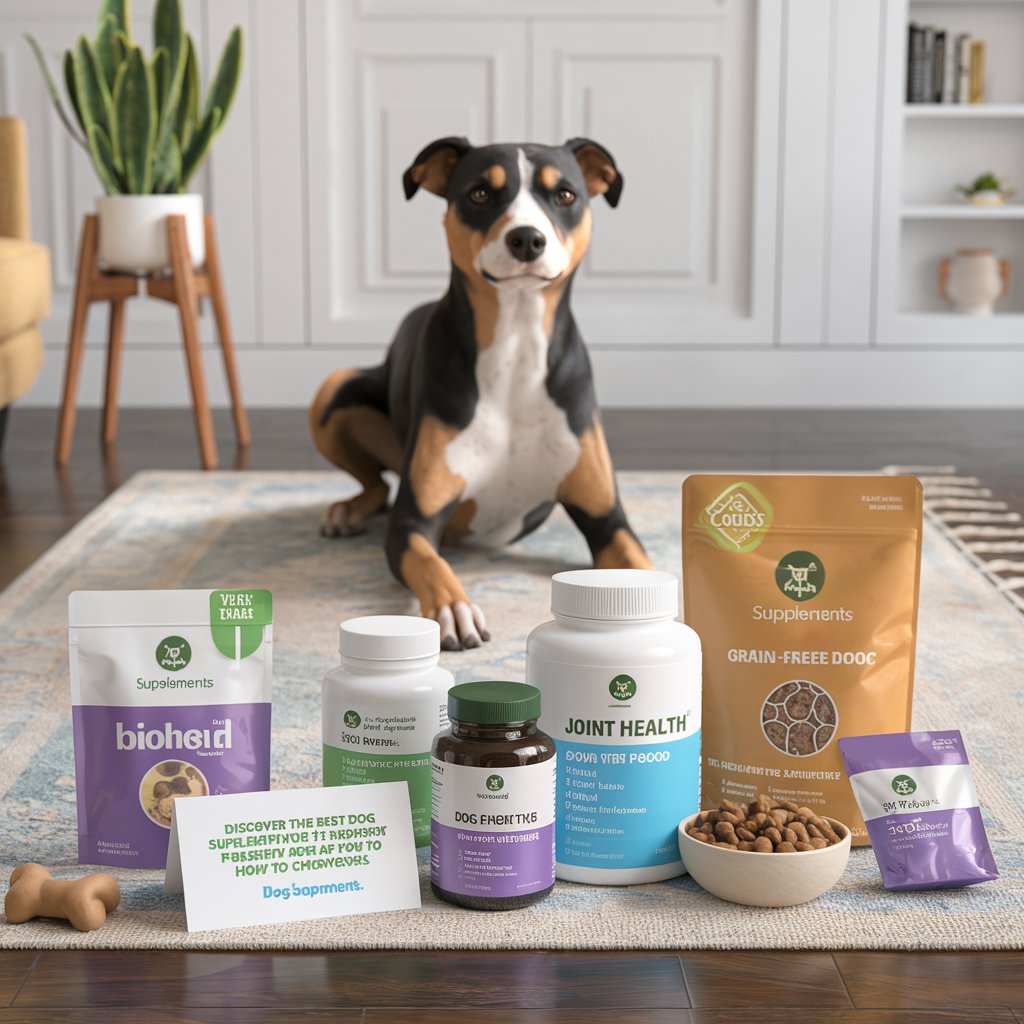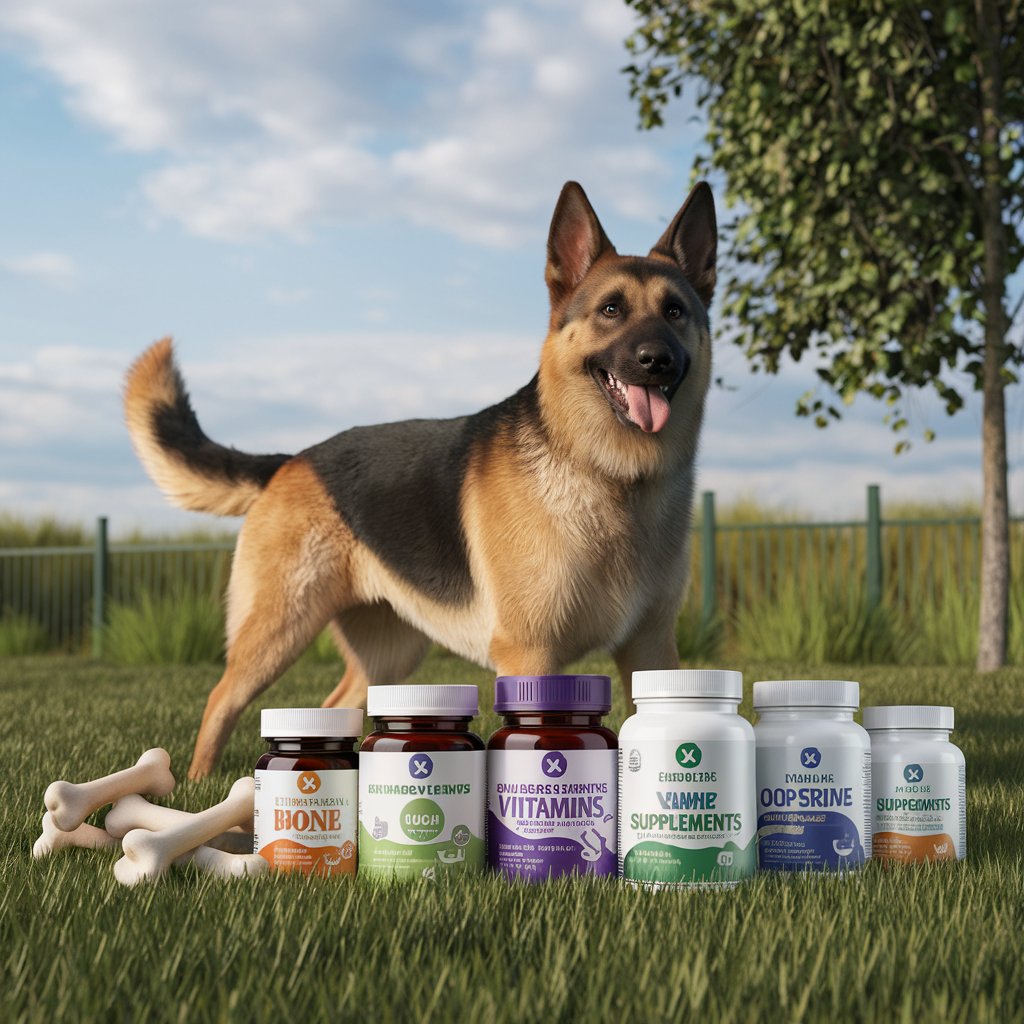Welcome, fellow dog lovers! Whether you’ve got a bouncy Labrador or a sassy Chihuahua, we all want the same thing: happy, healthy pups with wagging tails. But let’s be honest, keeping our four-legged friends in tip-top shape can feel like a full-time job. That’s where dog supplements come in. These tiny powerhouses can make a big difference in your dog’s life, from boosting their immune system to keeping their joints as flexible as a yoga instructor.
But with a dizzying array of options on the market, how do you know which supplements are truly essential? Don’t worry, I’ve got you covered. This guide will walk you through the must-have supplements for dogs, explain their benefits, and help you choose the best ones for your furry companion. Let’s dive in!
Why Dog Supplements Are Important
Just like humans, dogs can benefit from a little extra nutritional support. Sure, a balanced diet is crucial, but sometimes, even the best dog foods can fall short. Supplements can fill in those gaps, ensuring your pup gets everything they need to live their best life. Plus, supplements can address specific health issues, from skin problems to joint pain, helping your dog stay spry and full of energy.

Essential Dog Supplements
Let’s break down the supplements your dog might need, why they’re important, and how to choose the right ones.
- Multivitamins
- What They Do: Think of multivitamins as your dog’s daily insurance policy. They provide a balanced blend of essential vitamins and minerals that might be missing from their diet.
- Benefits: Multivitamins support overall health, boost the immune system, and ensure that your dog’s body is functioning at its best.
- How to Choose: Look for a product that covers the basics: vitamins A, B, C, D, and E, as well as minerals like calcium and potassium. Make sure it’s tailored to your dog’s size, age, and breed for the best results.
- Omega-3 Fatty Acids
- What They Do: Omega-3s are essential fatty acids that support heart health, reduce inflammation, and give your dog a shiny coat that’s the envy of the dog park.
- Benefits: These fatty acids are great for your dog’s skin and coat, but they also support brain health, joint mobility, and even help with allergies.
- How to Choose: Fish oil is a common source of Omega-3s, but make sure it’s high-quality and free from contaminants. Krill oil is another excellent option and is often more sustainable.
- Glucosamine and Chondroitin
- What They Do: These two are the dynamic duo of joint health. Glucosamine helps maintain the integrity of cartilage, while chondroitin prevents its breakdown.
- Benefits: Ideal for older dogs or breeds prone to joint issues, these supplements can reduce pain, improve mobility, and keep your dog hopping around like a puppy.
- How to Choose: Look for supplements that include both glucosamine and chondroitin, and if your dog is older or has arthritis, consider one that also includes MSM (Methylsulfonylmethane) for added joint support.
- Probiotics
- What They Do: Probiotics are the friendly bacteria that live in your dog’s gut, and they play a huge role in digestion and overall health.
- Benefits: Probiotics can help with a range of issues, from diarrhea and constipation to boosting the immune system and even reducing anxiety.
- How to Choose: Opt for a probiotic that includes a variety of strains (like Lactobacillus and Bifidobacterium) and ensure it’s designed specifically for dogs.
- Digestive Enzymes
- What They Do: These enzymes help break down food, making it easier for your dog’s body to absorb nutrients.
- Benefits: Digestive enzymes can improve digestion, reduce bloating and gas, and help with nutrient absorption, especially in older dogs or those with digestive issues.
- How to Choose: Look for a supplement that includes enzymes like protease, amylase, and lipase. Some products combine probiotics and digestive enzymes for a one-two punch.
- Antioxidants
- What They Do: Antioxidants are like the bodyguards of your dog’s cells, protecting them from damage caused by free radicals.
- Benefits: They can slow the aging process, boost the immune system, and even help prevent cancer.
- How to Choose: Common antioxidants include vitamins C and E, as well as ingredients like blueberries and green tea extract. Choose a supplement that matches your dog’s specific needs, whether it’s for general wellness or targeted support.
- CBD Oil
- What It Does: CBD oil is derived from the hemp plant and is used to support a range of health issues, from anxiety to chronic pain.
- Benefits: Many dog owners swear by CBD for its calming effects and its ability to reduce pain and inflammation without the side effects of traditional medications.
- How to Choose: Make sure the CBD oil is specifically formulated for pets, and always consult your vet before starting your dog on a CBD regimen. Look for a product that’s organic, with no added chemicals or fillers.

How to Choose the Right Supplements for Your Dog
With so many options on the market, choosing the right supplements for your dog can feel overwhelming. Here are some tips to help you make the best choice:
- Consult Your Vet: Before starting any supplement, it’s always a good idea to talk to your vet. They can help you identify your dog’s specific needs and recommend the best products.
- Check the Ingredients: Always read the label to make sure the supplement contains high-quality ingredients without unnecessary fillers or additives.
- Consider Your Dog’s Age and Breed: Different dogs have different needs. A senior dog might benefit from joint supplements, while a young pup might need a multivitamin to support their growth.
- Start Slowly: When introducing a new supplement, start with a lower dose and gradually increase it. This will help you monitor your dog for any adverse reactions.
- Look for Quality Brands: Stick to reputable brands that prioritize quality and safety. Check for third-party testing and certifications to ensure you’re getting a product you can trust.
Common Mistakes to Avoid
Even with the best intentions, it’s easy to make mistakes when giving your dog supplements. Here are a few common pitfalls to watch out for:
- Over-Supplementing: More isn’t always better. Giving your dog too many supplements can lead to an imbalance or even cause harm. Stick to what’s necessary.
- Ignoring Dosage Instructions: Always follow the recommended dosage on the label. Giving too much can be dangerous, while giving too little might not be effective.
- Skipping the Vet: Don’t play doctor—always consult your vet before adding a new supplement to your dog’s diet.
Conclusion
There you have it—a complete guide to essential dog supplements! Whether your dog needs a little extra support for their joints, a shinier coat, or a happier tummy, there’s a supplement out there that can help. Remember, supplements are just that—supplements. They’re not a replacement for a balanced diet and regular exercise, but they can be a great addition to your dog’s overall health plan.
So, go ahead, give your furry friend that little extra boost, and enjoy those happy, healthy years together. After all, our dogs give us their best—let’s make sure we’re doing the same for them!












Discussion about this post